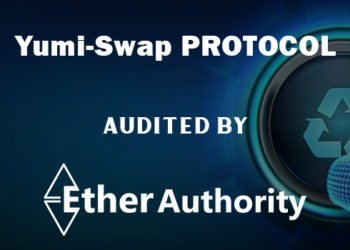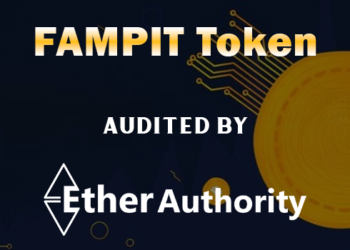Why the DEFO Protocol Audit Matters: Security, Trust & Transparency
EtherAuthority conducted a comprehensive security audit of the Decentralized Foundation (DEFO) smart contracts—part of the DeFi‑as‑a‑Service model on the Avalanche (AVAX) network. DEFO aims to empower DeFi projects with automated fundraising and charitable donations, using smart contracts to deliver transparency and efficiency.
Audit Scope & Objectives
EtherAuthority audited the Defo Contracts Protocol codebase, checking every function and permission in detail. The process combined automated tools—such as Slither and Solhint—with rigorous manual review by security engineers. The main goal was to validate that declared features function as intended, while identifying potential vulnerabilities or inefficiencies in the smart contract logic.
Key Findings & Recommendations
Although EtherAuthority labeled the DEFO contracts as “Secured”, the audit emphasized ongoing vigilance. The report outlines best practices such as:
- Strict access controls: naming owner roles, limiting who can perform critical actions, and avoiding unchecked privileged functions.
- Safe mathematical operations: guarding against integer overflow/underflow, ensuring proper input validation, and enforcing event logging for major state changes.
- Clarity in token logic: verifying methods like minting, staking, donation flows, and withdrawal behave exactly as intended according to protocol design.
EtherAuthority underscores practices such as renouncing ownership where feasible to enhance decentralization, and encourages post‑audit bug bounty programs to catch issues not uncovered during the initial review.
Why It Matters for Users and Developers
For developers: this audit acts as both a shield and a roadmap. By proactively uncovering and addressing low- to medium‑severity issues, DEFO improves resilience, code quality, and user confidence.
For the community: a public audit offers transparency. Knowing that DEFO’s smart contracts have been scrutinized by an independent authority builds trust, especially for users involved in staking, yield farming, or donating via the protocol.
Best Practices for DeFi Protocols
When building or evaluating similar projects, consider these principles:
- Merge automated and manual audits: automation speeds things up; human review catches nuanced edge cases.
- Define ownership clearly—and minimize it: reduce trusted roles over time for better decentralization.
- Log every critical action: token minting, transfers, donations—these should trigger events for on‑chain audit trails.
- Implement bug bounties: post‑audit testing by ethical hackers strengthens resilience.
Final Thoughts
The audit of the DEFO protocol smart contracts—backed by EtherAuthority’s deep technical and manual review—serves as a strong signal of reliability. By adhering to clean code principles, robust access control, and open transparency, DEFO delivers a blueprint for secure and trustworthy DeFi infrastructure.
For any DeFi project aiming to win trust and avoid costly exploits, this audit report demonstrates how professional scrutiny turned assumptions into confidence.
You’ve built something powerful—don’t let a single flaw bring it down. Protect it with EtherAuthority. Email: contact@etherauthority.io
Audit Report in PDF: Defo Contracts Protocol Smart Contracts Security Audit-Report
Discover more: Twitter | Website | GitHub | Telegram | Facebook | YouTube | Fiverr























